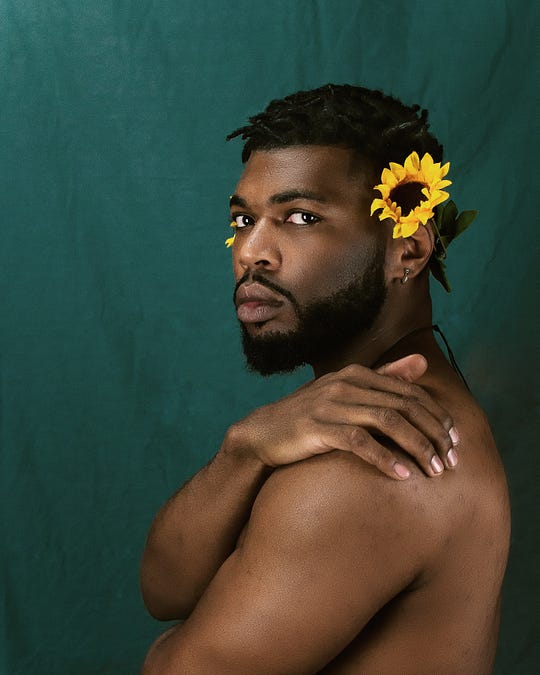On numerous occasions, I’ve been told by lovers, friends, even some family, that I have “feminine qualities” or “gay tendencies.” There seemed no ill will behind the remarks, however, for years it made me question myself (and the relationship). As a black man, I sit at a disadvantage within a society structured to favor whiteness. However, in a system of patriarchy, there is still a level of privilege I possess that many other groups do not benefit from.
Within the framework around which our society has been structured, we are all boxed into simplistic categories and comparisons.
Heterosexual black men should carry themselves this way, dress that kind of way, seek this sort of attention, have these types of relationships.
The pressure to conform is a real one. It surrounds us through the sounds in our headphones. It radiates with a mechanical glow through our television and computer screens. It quakes away our individuality through our phone's vibrations, shaking us all into a flow of likes and dislikes, then ringing as an geo-tagged alarm in instances of a drift from group-think. For black men, there are cumulative impacts of the imbalances of our patriarchal society that intertwine themselves within the psychological repercussions of racism and class, the combined cocktail then embedding itself within the messages of our formative years, becoming a part of who we believe ourselves to be.
Completely voiding my sexual preference, these sorts of statements coming from people whom I trusted enough to allow into the inner sanctum of my life made me question my existence and wonder which title — which societal categorization of human life and expression — best fit my existence. At a time, I felt myself attempting to behave in a manner I assumed was considered more masculine. I found myself dressing in styles not self-expressive but based on the trends of the label I'd been donned, based on how I'm perceived. I refrained from listening to certain music that seemed to have a more feminine energy (whatever that means … like, how can music be classified as boy music or girl music or straight music or gay music?). This goes to say that yes, my young life contains a short chapter in which I allowed the expectations or assumptions of those completely disconnected from my knowledge of self to play a factor in how who chose to be.
And I became severely depressed.
I felt like my existence was not my own, and that I was unhappy due to my inability to play the role I'd been cast into in the world's sitcom (on some Truman show-tip). I allowed myself to think that I was somehow less than people who could perform these roles with ease. I began to box myself inside of a cell within the prison I'd already been seemingly forced into by societal compulsions, both invisible and as real as the screen you're reading this through.
I did not know who I was, and it was reflected in the way I lived my life. My relationships were formed based on a desire for external validation. I resented my partners and friends, both for having expectations of my existence based on such external factors, and for not reinforcing my sense of masculinity and validating my attempts to play the part.
It took a journey towards self-love and inner-peace for me to unlearn enough layers of the world to where I could heal in self and become a man void of external definitions of such. As long as I relied on the world’s definition of my existence, suffering from fear of perceptions of me having been raised in a black household with all women (in a family with many more women than men present), terms like “gay tendencies” foolishly sounded like something real, not an ignorant and uneducated “average” of assumptions and expectations of a specific group of people.

Void self-motivation towards self-education, empathy and self-liberation, one may unintentionally harm someone they love through the mindless perpetuation of the stereotypes and expectations that try to bind us in prisons of conformation and homogeny.
love self.
seek peace.
be free.
